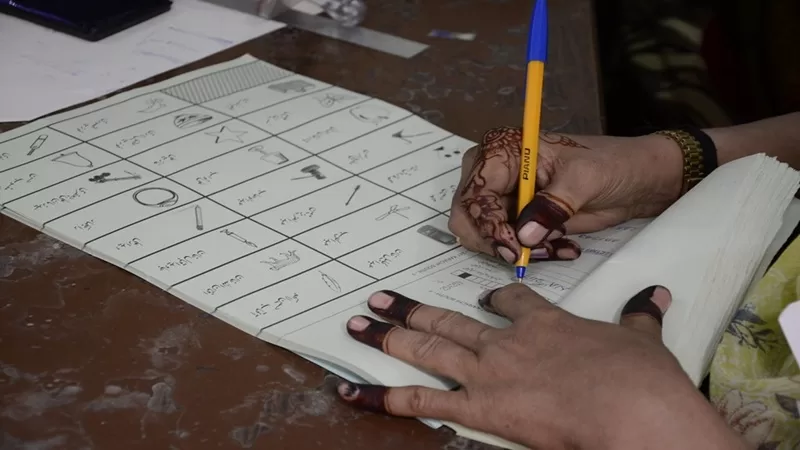The article was originally published in The Geopolitics back in April 2023. Though “elections” have taken place, the piece remains as timely as last year.
That is the question! Those who wanted them a year ago, don’t want them today. Those who “absolutely not” are desperate for them today. But as the French writer Karr puts it; “the more things change, the more they stay the same”. Pakistan’s infatuation with elections is both pleasing and disturbing, albeit for the same reason. The solution to all problems, Pakistanis are again being told, is holding immediate elections but isn’t democracy more than that? A concept that comes to mind and needs to be discussed here is the Fallacy of Electoralism.
Fallacy of Electoralism
The term Fallacy of Electoralism was introduced by Terry Karl and it refers to the belief that merely holding elections would eventually lead to a democratic system. Elections are a common occurrence in almost all “authoritarian” and/or “tutelary” democracies around the globe, but these systems continue to journey in the wrong direction. Policymaking rests with unelected officials and civil liberties at their discretion. Yet, the “Demos” is made to believe that the “Kratos” is theirs (or could be theirs) and the elections a path to it. If no hope is a sin, then false hope is the road to it.
In a typical “authoritarian/tutelary” democracy, policymaking evades the electoral process and elections boil down to competition for access to state resources. It is quite unsurprising that such systems give rise to a political class that is least interested in socio-political reforms and sees politics as a money-making machine, hence rampant corruption, and mismanagement along with other ills. The buck does not stop there; the voters too are cognizant of the system’s limits which gives rise to a voter class (especially in rural and semi-urban constituencies) that votes solely for institutional patronage and access to funds. The political culture becomes opportunistic, glutton, short-sighted, and devoid of any political ideology. Over time, the “Demos” grows completely oblivious to their identity and potential. On the other hand, state institutions continue to concentrate wealth and resources in themselves. The process that started with policymaking and reforms being off-limits to the “Demos” quickly reaches a point where state resources are taken off the table as well. Consequently, the electoral process gradually reduces to an exercise in futility but not for the ruling classes. It lends credibility to the hegemonic system and reinforces the façade of democracy.
Spoils of the Victor
Even a cursory look at Pakistan’s socio-political canvas is enough to reveal the stakeholders; the omnipresent state and its functionaries, unelected lords and their financial silos, and political fan clubs and their masters. The fortunes of the first two are not dependent on the outcome of the elections, not even on the health of the country, and that of the last… well, Pakistan has several administrative units. The canvas has been well divided, it is only the “Demos” who are and will be missing. Any meaningful policymaking will remain beyond the reach of those elected and those elected will continue to be least concerned about any meaningful policymaking. The upcoming elections will yet again be held under impotent laws and a docile election commission, with exorbitant financial investments and pre-poll and poll-day rigging, and will be devoid of any socio-political ideology. In the current system, elections will continue to serve as a vehicle to state machinery and funds. The gist is well captured in the following statement by Karl Marx in The Eighteenth Brumaire of Louis Bonaparte:
“The parties, which alternately contended for domination, regarded the possession of this huge state structure as the chief spoils of the victor.”
The Evolving Truth of Pakistan - Invisiblites
The Road Ahead
French philosopher Michel Foucault described power as a “machine in which everyone is caught”. Power, according to Foucault, is “intentional” and “non-subjective”. Individuals – be it the personnel in state institutions, members of the political class, or the voters – make “intentional” decisions but the mechanisms of power that they exercise are inherently “non-subjective”. In other words, the power mechanism does not rely on individuals and the choices they make. A fantastical sub-picture within the bigger picture is the tame and prosaic political talk shows on the electronic media. A typical cast includes an invisible regulator – “free” to regulate according to some distant ideology set by someone, somewhere, sometime; an enlightened host – “free” to ask questions within the bounds set by the regulator’s ideology; and some political actors – “free” to answer within the bounds set by the host’s questions. At each level, power may seem to be intentional but when combined, it becomes non-subjective. As Foucault puts it, “People know what they do; they frequently know why they do and what they do; but what they don’t know is what they do does.”
The road ahead is the same as behind. Sooner or later, advertently or inadvertently, the seemingly warring stakeholders will reach a settlement, not because better sense will prevail but because all are the manifestations of the same ill. It is simply not in the interest of either of them to pursue anything apart from what they have been pursuing. The present crisis is after all a power crisis, created by those who wanted to cling to power by hook or crook. Those stakeholders who aspire to resolve the current crisis should keep faith in the power mechanism that they are a product of, it has and will satiate all of them.
[Shiraz Gulraiz is the Founding Editor of Invisiblites. He is an academic author, freelance writer, and engineer by profession. He holds a Ph.D. from The University of Texas at Austin.]
This article was originally published in The Geopolitics.
